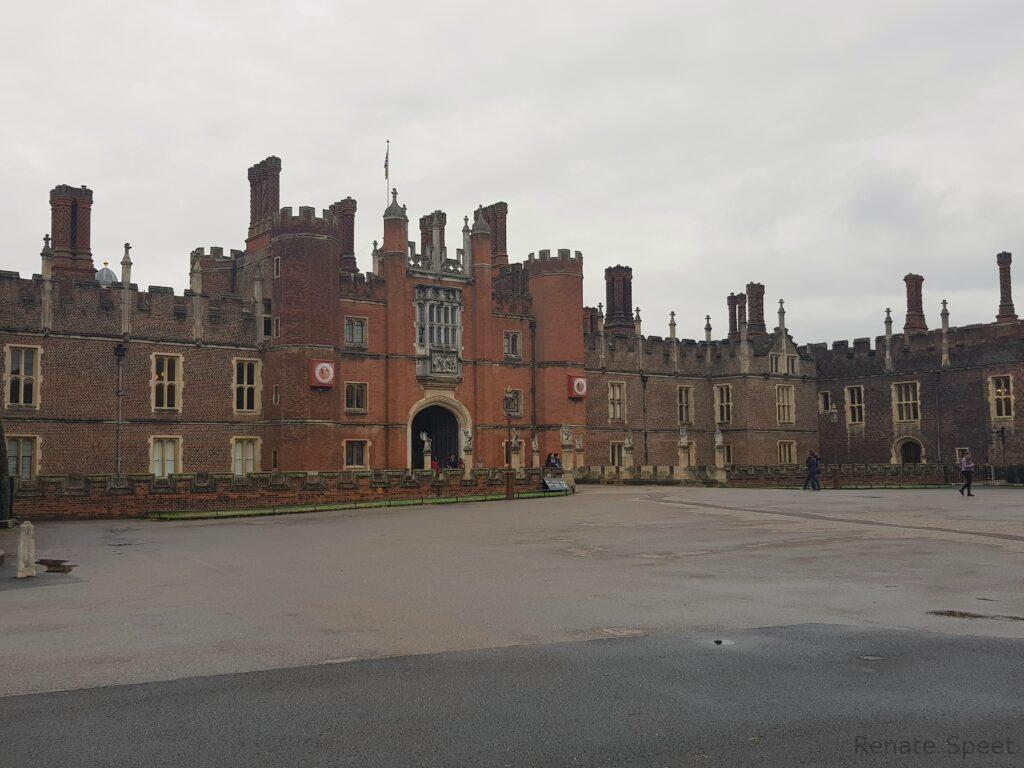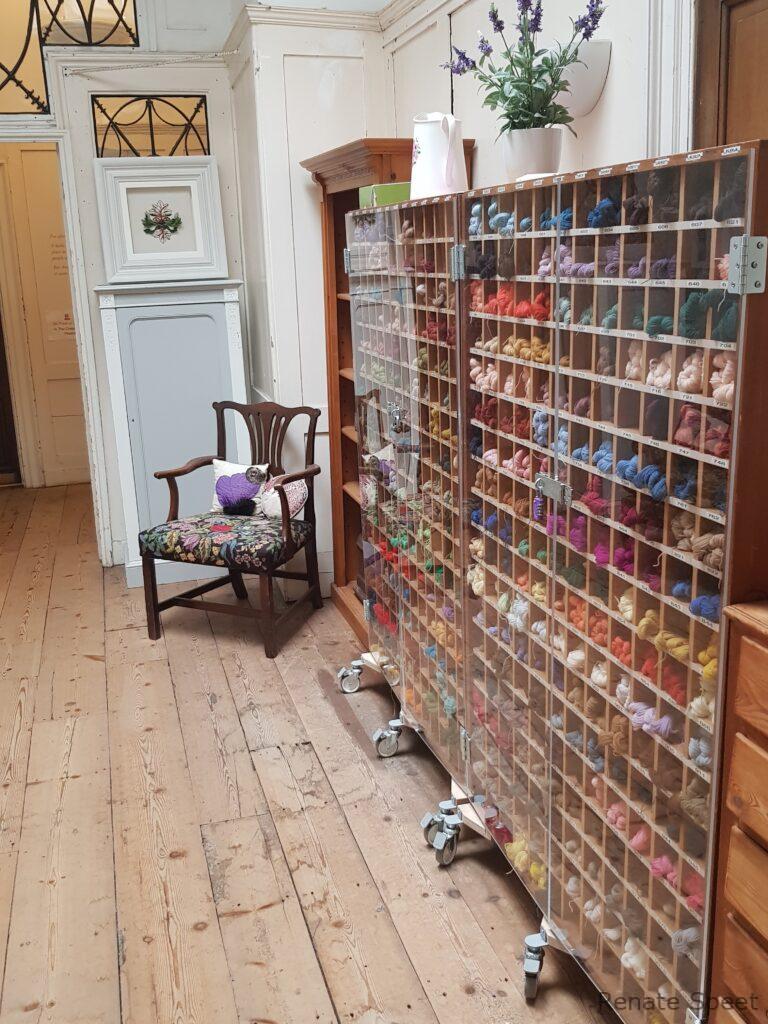When I started embroidering as a child, I began with simple cross-stitch kits. I loved the feeling of making something beautiful by hand, and the quiet rhythm of needle and thread. During university I set it aside for a while, but when I started working, I picked embroidery up again. This time, it wasn’t just about creating something tangible — I found the slow stitching deeply relaxing, almost meditative. Wanting to take my hobby further eventually led me to the RSN Certificate, a structured program that promised to push me beyond cross-stitch and into the wider world of embroidery techniques.
For a long time I wasn’t aware you could do more than cross-stitch. That changed when I stumbled across Mary Corbet’s Needle ’n Thread blog by chance. A whole world of techniques and embroidery styles opened up for me. I tried several of her stitch-alongs, which helped me learn new stitches, but soon I realized I wanted more structured training. I wanted to really understand the techniques, learn how to design my own pieces, and make informed choices about fabrics and threads.
Finding the Royal School of Needlework (RSN)
An online search eventually gave me two options relatively close by (I live in the Netherlands): one school in France and the Royal School of Needlework (RSN) in England. The French school (École de Broderie d’Art) focused more on haute couture embroidery, which didn’t quite match what I was looking for — and my French is hopeless anyway. The RSN, on the other hand, had a focus on traditional techniques, creative design, and developing technical skill. My English is far better, and their program seemed like the perfect fit.
The RSN Certificate promised a carefully structured journey across multiple embroidery styles, offering both technical mastery and creative freedom. Exactly what I was after.
What the RSN Is
The Royal School of Needlework, based at Hampton Court Palace, has a long and prestigious history. Known worldwide for preserving and teaching both traditional and contemporary embroidery techniques, the RSN combines precision with creativity. Studying there has been a joy: the tutors are incredibly experienced and supportive, and every class is filled with fellow stitchers working on inspiring projects of their own.

About the RSN Certificate
The RSN Certificate in Technical Hand Embroidery is built around four core modules:
• Jacobean Crewelwork
• Blackwork (or you can choose Canvaswork)
• Goldwork
• Silk Shading
Each module has its own brief, a specific technical focus, and assessment criteria. The program is designed to be spread over several years, giving students the chance to plan their own designs, refine their stitching, and grow steadily under the guidance of RSN tutors.
What I particularly love is that the Certificate isn’t about reproducing a fixed design. Instead, students are encouraged to develop their own motifs, make thoughtful stitch choices, and reflect on their progress at every stage. It’s a balance between structure and freedom that suits me perfectly.

Pacing Myself
Another big plus is flexibility. I work a fairly demanding job, which means I can’t commit to a class every week — or even every two weeks. Add in travel time and costs, and flexibility becomes essential. The RSN model works well for me: classes run every day (yes, seven days a week!), so I can book according to my own schedule. Since Covid, online classes have also been an option.
Typically, I alternate between online classes (every month or two, depending on how much homework time I can spare) and in-person weekends at Hampton Court. A usual routine is flying out on a Thursday evening, taking class on Friday and Saturday, and flying home Saturday night. I manage about two to three such weekends per year.
In theory, each module can be completed in a minimum of eight classes. I did manage that for my Jacobean piece, but for the later modules I chose to take more time. I’d rather deepen my understanding and finish projects in a way that feels right, even if it means taking extra classes. After all, embroidery is my hobby — I enjoy the process as much as the outcome, and I don’t feel pressure to rush.
Looking Ahead
Next, I’ll take you through each RSN Certificate module — from Jacobean Crewelwork to Silk Shading — sharing my stitching experiments, design choices, and lessons learned along the way.
